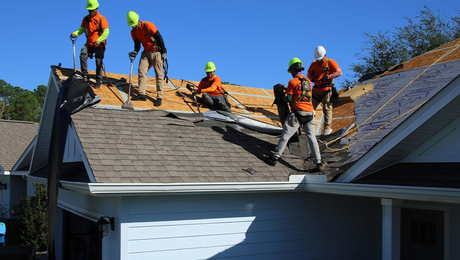*
In the last few days there has been discussion here about using a Megger (doing a megger?) to check a house for electrical damage caused by a (huge) power surge.
This test sounds interesting to me because i don’t have enough things to worry about and it gets me wondering:
Is this test the kind of thing that an electrician would do for any house to check the electrical system, much like the plumbing is pressure tested after installation?
It seems like a thing that could tell one alot, especially if they have had the entire house re-wired, or if they have had any extensive remodeling done, or just concerned about how well the job was done / how well an old job is holding up.
Has anyone out there who has had this done, or anyone who does this for a living, got any thoughts to share before I start looking in the yellow pages?
It seems that we have all gas lines, water supply, waste and vent plumbing tested (at least in new construction) but I never before have heard of any test like this that could be done to measure the integrity of the electrical wiring (except for just visual checks).















Replies
*
A "megger" simply puts a very high voltage (typically 500 or 1000 volts) across the insulation and measures the current flow. In this way it measures the insulation value, just like any other ohmmeter. There is nothing really special about them, except that the higher voltage allows you to measure much higher resistances (Millions of ohms, or Megohms -- "megger = Megohms" -- got the slang term?)
Now, in a house (or a trolley car motor, where my experience comes) if the resistance is high everything is (probably) ok. If it is low, it might be ok, or not. An outdoor outlet with a little condensation can give a low reading, and is probably ok; a microwave is probably not ok.
Then, in a house you have a LOT of places where there might be lowish resistance, all of which are OK. But they are all in parallel, so the effective resistance might give a false fail indication. All in all, if a megohmmeter test would help, at least someone would be doing it. These things have been around since the '20s.
*I don't see that megging a new house would have any advantage. You might use to check for things like a motor that was flooded. I could see doing it in a 50+ year old home that has the rubber/cloth insulation.However, one test that could be done on new homes is a dynamic load test. That will find bad connections. Specially important if you allowed anyone to use backstab outlets.
*Meggers by AEMC: http://64.55.177.138/products/index.asp I would think that it is likely to do more damage with the test rather than find problems with the wiring. Usually the wires are removed from the loadcenter c/b and neutral and megged to ground. Most meggers are 1000V so you have to remember to remove any loads. Just unplugging things is not enough. Got any dimmers? GFCI's? lights with photoeyes or motion sensors? All would have to be removed from the circuit being tested or risk destruction. Meggers earn their keep tracking down mystery faults in circuits that appear normal.Allan
*Have used meggers for years testing aircraft and military system wiring, one time trying to fix flooded generator at a dam. As others mentioned, using it in a house will likely result in some burnt out stuff you forgot to disconnect. The load test Bill recommends is a much better test for home wiring.
*OK, Dynamic Load test:Is this done regularly in new home construction? Or is it only used for trouble shooting strange / hard to diagnose problems?Have any of you electricians out there done it on your own homes and found any thing that you had not found through the usual (visual) code inspection?(man, this board is so cool. I swear, every time I think I'll stop lurking because the questions / answers are getting too familiar something really new comes up!)
*Is the dynamic load test done in conjunction with a ir scan?
*
In the last few days there has been discussion here about using a Megger (doing a megger?) to check a house for electrical damage caused by a (huge) power surge.
This test sounds interesting to me because i don't have enough things to worry about and it gets me wondering:
Is this test the kind of thing that an electrician would do for any house to check the electrical system, much like the plumbing is pressure tested after installation?
It seems like a thing that could tell one alot, especially if they have had the entire house re-wired, or if they have had any extensive remodeling done, or just concerned about how well the job was done / how well an old job is holding up.
Has anyone out there who has had this done, or anyone who does this for a living, got any thoughts to share before I start looking in the yellow pages?
It seems that we have all gas lines, water supply, waste and vent plumbing tested (at least in new construction) but I never before have heard of any test like this that could be done to measure the integrity of the electrical wiring (except for just visual checks).